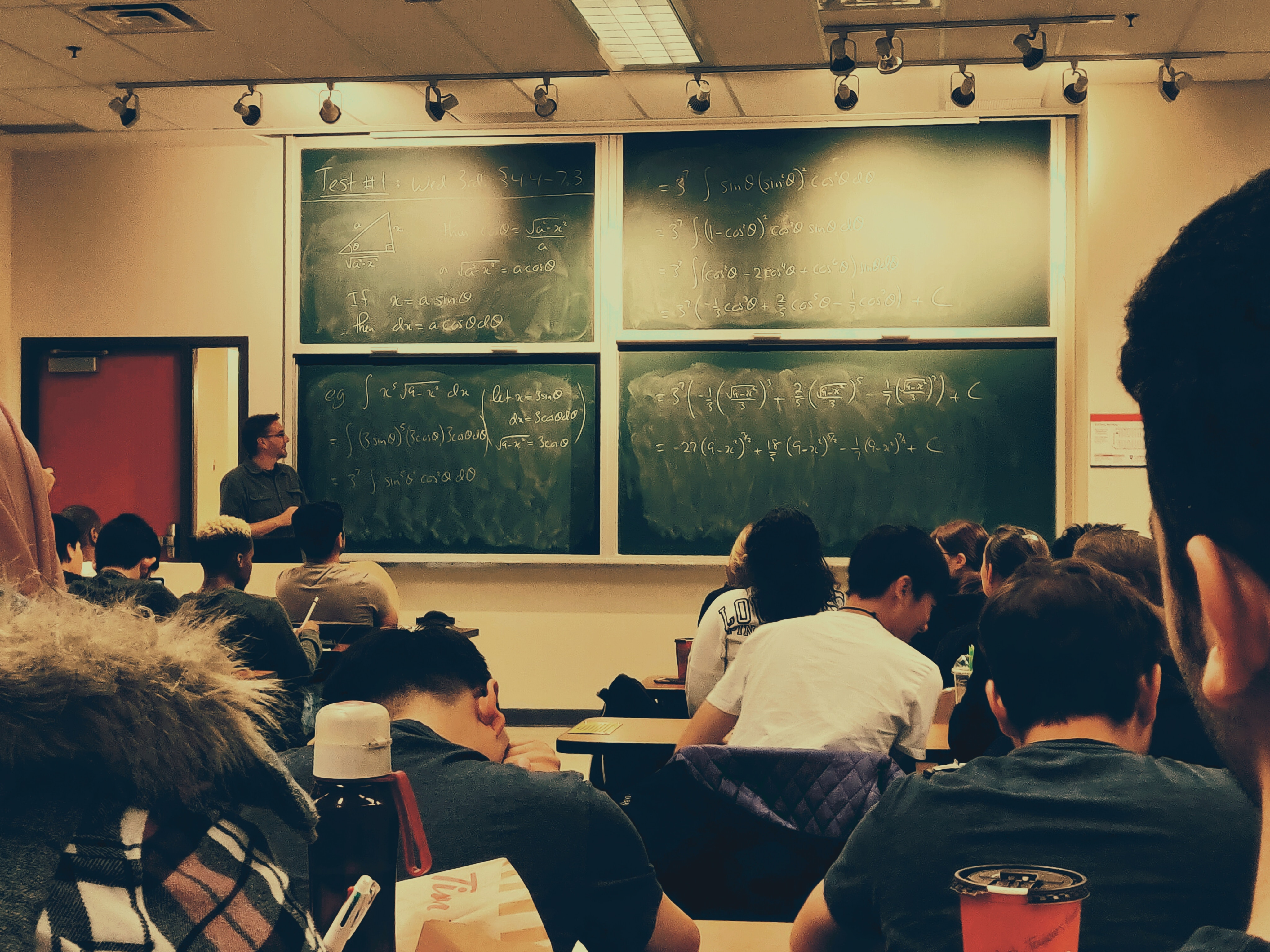
Many universities have kept online classes for some, if not all, of their teaching, but it requires lecturers to keep students' attention and engagement.
Dr Bei Hong from Singapore Management University’s School of Economics explores how simple games on economics courses can grab students' curiosity and facilitate learning in a more engaging and memorable way.
Read the original article: https://doi.org/10.4337/aee.2022.01.04
Transcript:
Hello and welcome to Research Pod. Thank you for listening and joining us today.
While much of the world has moved on from the looming threat of the pandemic, for others there are changes that are here to stay. Many universities are opting to continue online classes for some, if not all, of their teaching. Such a set-up requires motivated students who come prepared and willing to engage readily with the material despite the absence of a professor’s watchful eye. Unfortunately, this is often not the case: removing the student’s need to ‘show up’ can leave them less than committed to the tasks at hand. As a result, research is starting to reveal that learner confidence, understand and test performance all suffer.
Clearly there is a need to bridge the gap created by this physical distance. In today’s episode, we will be looking at the work of Dr Bei Hong from Singapore Management University’s School of Economics.
Her research, published in 2022’s Advances in Economics Education journal, explores the challenges university professors are experiencing in both capturing and maintaining student engagement during online classes.
Hong sets out to explore the potential solutions to be found through the use of simple economic games to both pique learners’ curiosity and tactically allow them to take on board information in a more engaging and memorable way.
There’s a reason why nurseries are set up for small children to learn through play, and this ethos doesn’t change as the child gets older. Games are a beneficial tool in allowing students to absorb complicated ideas in a more natural and logical manner. If a participant can see how and why a concept is useful and observe it in ‘real terms’, they are more likely to both retain and understand it. The use of games in this manner has been proven to both improve exam results but also, pivotally, to increase enthusiasm and engagement towards the subject. It has an added bonus of increasing students’ digital literacy as they become more confident with online tools.
While teachers can lack the time or confidence to try new techniques, it is clear a rethink of current practice would be useful to improve both student motivation and results. Additionally, whether professors are teaching fully online, in a hybrid format or continuing with in-person lectures, this is valuable research for educators in general, who may choose to use gaming techniques as a complement to their traditional ways of teaching. Hong’s research references examples of games successfully being used in foreign language teaching, IT training and courses in teaching itself.
While literature about gaming in Economics itself can be scarce, Hong references The Economics Network as an excellent place to start for those cautious about embarking on these newer ways of teaching. However, she stresses that use of such techniques should be carefully thought out and intelligently integrated with the existing course material – in other words, students should not be scared off by ways of learning that differ from more typical methods.
Hong looks at four prospective games that could be used regarding the online teaching of Economics. They focus on allowing the student to use economic theory in ‘real world’ contexts and then analyse the results of their decisions through subsequent seminars and discussion groups. The games are highly accessible and available on widely used platforms such as Zoom. Where games require students to work in teams, they provide an excellent opportunity for personal development in communication and collaboration.
So, Let’s take a look at the games being investigated.
Firstly, “Draw Apples Online” looks at the theory of the Law of diminishing returns. Teams are asked to draw and colour as many apples as they can in one minute – however, only one player may colour the apples at one time. The experiment starts with one volunteer – drawing and colouring – and gradually increases until the experiment shows decreasing marginal product.
When the volunteers increase from one to two, each player usually fulfils one role – drawing or colouring. At this stage, there should be a noted increase in marginal product due to increasing productivity from specialization.
However, as only one player can colour at a time, simulating fixed physical capital in the short run, as the volunteers increase, the marginal product will eventually go down. This allows players to understand the relationship between increased labour and resultant output. Students can further engage by estimating how they think the marginal product will change as each new volunteer is added.
Game Two is called Trade Online and looks at comparative advantage and reciprocal demand. Groups are divided into eight groups which will then become four trading pairs. Each group is allocated a country whom they represent. They are also provided with abstract labour data about the production costs of twenty two products. The groups then trade with each other as efficiently as possible utilising the comparative advantage of their area. Through experimentation, each group will learn to trade in a mutually beneficial manner, exporting a certain amount of their products for the highest amount of import items possible. They can then observe how their decisions affect the gain from trade for their country compared to their peers.
Game Three involves a phone production competition and is designed to teach students about the economics behind supply chains. Volunteers are assigned various production roles within one of five smartphone companies – design, component production or assembly. They are provided with private cost information for in-house production and can negotiate with different suppliers to try and obtain a cheaper cost for each role. On the final worksheet, volunteers must record their negotiated rate – or they can choose to revert to in-house production.
By observing this process in real terms, students can better understand supply chain theory at work and analyse why companies may outsource certain tasks (such as technical production) and perform others in-house (such as product design) where there is no preferable alternative. The experiment can then lead to a wider discussion on both the benefits and potential challenges that come from a global supply chain in allowing students to consider factors such as trade wars and rising wages.
The final experiment examines exchange rate arbitrage. Six students are assigned as bank managers with the remaining students acting as floor traders. Within a five-minute trading window, they must use US dollars to buy £1000 Pounds sterling at the lowest possible price and then resell it at the highest possible price. Bank managers must carefully consider their bid and offer rates and fix these for five minutes. With limited stock of Pounds or US dollars, they can only trade with a maximum of 15 floor traders. Traders must therefore absorb the exchange rates and act quickly to avoid losing the most lucrative deals.
To extend the game, after 5 minutes, players may participate in another round with banks adjusting their bid and offer rates according to supply and demand.
In the post-game discussion, students can analyse who garnered the best deal, who missed out yet still made a profit and who has made a loss. Immersing them in a situation like this will allow them to better understand factors such as the stress of the trading floor and the rapidity with which the best deals disappear.
All four games have been used at Singapore Management University in the 2021 summer term as part of both online and classroom learning. When analysing student feedback, Hong notes that students were markedly more involved in both answering lecturer questions and volunteering questions of their own compared to similar sessions which did not include games. Students were also asked for post-session feedback and confirmed that their knowledge of the topics at hand had increased, they were motivated by the gaming aspect and they enjoyed the interactive and social elements of the tasks compared to passively listening to a lecturer.
Hong is keen to point out that the gaming technique is not flawless. Student feedback also noted that they experienced confusions over new technologies and frustration over roles within their group. Such issues are easily remedied, but these comments emphasise why it is important to solicit student feedback and act upon the results to deploy the technique successfully.
In conclusion, Hong’s research indicates that, with careful and considered application, the use of games are beneficial not only to those looking to enhance online learning but also to those wanting to complement more traditional forms of learning.
That’s all for this episode. Thanks for listening, and be sure to stay subscribed to ResearchPod for more of the latest science. See you again soon
Also published on: https://researchpod.org/business/engaging-economics-levelling-learning-games
Podcast is also available on Spotify, Apple iTunes, Google Podcasts, and many more (please use search term “ResearchPod”).
See More News
Want to see more of SMU Research?
Sign up for Research@SMU e-newslettter to know more about our research and research-related events!
If you would like to remove yourself from all our mailing list, please visit https://eservices.smu.edu.sg/internet/DNC/Default.aspx

